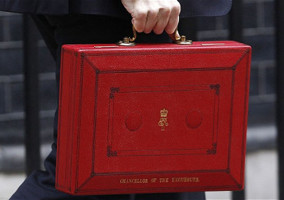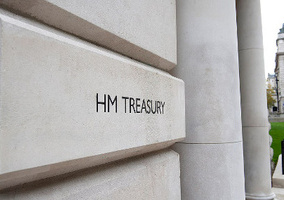Last week, the chancellor asked charities to trust him.
The problem is that they don’t – and Wednesday’s budget will have reminded them why not.
The sector has grown increasingly frustrated with a government which throws around big numbers and then delivers slowly or not at all, yet Rishi Sunak’s speech repeated all these tropes, while attaching ever-bigger sums of money.
He doubled-down on a series of promises that civil society has heard before, while insisting that – this time, honestly – the government would be as good as its word.
It is unlikely that charity leaders, sceptical when the chancellor stood up at the dispatch box, would have changed their minds by the time he sat down.
Old money
One issue (and Sunak is hardly the first chancellor guilty of this) is that this isn’t new money. It was a chance to re-announce existing funding, packaged together to sound as generous as possible.
So we heard about cash to help left-behind communities (through the Levelling Up Fund) and to make up money lost after the UK left the European Union (through the Shared Prosperity Fund). Plus grants to help people save local pubs and village halls from closure (through the Community Ownership Fund) and to open hundreds of youth centres (through the Youth Investment Fund).
There are billions of pounds on the table here, not a penny of which was new on budget day. But the issue runs deeper than that.
Charities tracking the progress of these funds and programmes have already seen them hit by myriad delays and problems. We can see how much the government is struggling to deliver this support. The idea that it will fix civil society, let alone level up the whole country, seems fanciful.
Faltering programmes
Take the Shared Prosperity Fund (SPF), promised as a replacement for the EU cash civil society lost after Brexit.
Will it replace that funding? No. It will be millions of pounds short.
As the Charity Finance Group has helpfully outlined, the SPF won’t match EU structural funding next year, or the year after that (although it could finally do so by 2024). The Independent newspaper picked up on the story, too.
In addition, the budget allocated a chunk of SPF money to a £500m numeracy programme over the next three years, squeezing the cash available for other programmes.
Oh, and the SPF hit a few bumps over the summer when the government was forced to delay releasing information to stakeholders, despite promises by ministers.
In other words, Sunak is asking charities to trust in a fund which is smaller than he claims, has already spent some of its money before it opens to applications, and couldn’t get its brochures out to stakeholders on time.
What about the Youth Investment Fund (YIF), which has been promised to create hundreds of clubs and hubs for young people all over England?
The YIF was first announced by Sunak’s predecessor at the Treasury, Sajid Javid, in 2019. It didn’t make any grants for two years, leading charities and local councils to write in a panic to the minister for civil society, trying to chase down the promised cash. Yet here it was being rolled out again, in the hope no one noticed what a mess it has been so far.
On top of this, the small print in budget documents shows that some YIF money will be siphoned off to help fund the National Citizens Service, the coalition-era programme for young people which has been beset by missed targets and expensive legal problems.
Again, the money promised by Sunak involves reheating an existing commitment on a delayed fund where a chunk of cash has already been promised elsewhere.
Finally, let us not forget that this work is grouped under the government’s big idea of levelling up the country.
Sunak talked about this on Wednesday, of course, and the government’s promise to address regional inequalities which impact job prospects and wellbeing in different areas.
Levelling up now has a dedicated minister. The prime minister has splurged tonnes of political capital on it. But the actual plans are still nowhere to be seen.
There was going to be a government white paper earlier this year, then within weeks of party conference season finishing last month, and now “before the end of the year”. Here too, for all the big promises, the timetable is slipping.
This does not augur well.
Inflation is coming
Depressing as this is, it isn’t the worst thing charities heard on Wednesday.
Very early in his budget speech, possibly to get the topic out the way as quickly as possible, Sunak talked about inflation. Government experts expect inflation to hit 4%, he said, putting an official stamp on economic predictions which have been widespread for months.
It means the cost of living – the price of everyday stuff from energy bills to toilet rolls – will go up. Wages in some jobs are rising, too, but they are unlikely to keep pace with higher prices. Welfare benefits definitely will not. (The proposed 10% increase in National Insurance will also have the biggest impact on the lowest earners).
As a result, people’s money just won’t go as far. Weekly shopping will either cost more or will stretch to fewer purchases. Nasty financial surprises – a vet’s bill, a rent hike, a last-minute train ticket during a crisis – will pose much bigger problems.
The grim truth is that inflation is guaranteed to drive up demand for charities’ services. It will drag the poorest families into even more financial trouble, and create new issues for families who had, up to now, been coping.
As Debra Allcock Tyler, the boss of the Directory of Social Change, has written, charities are not going anywhere. The sector will be on hand to help communities get through this, knackered and annoyed and working to the best of its abilities. But the budget won't have inspired confidence that things are about to get better.
Related articles












